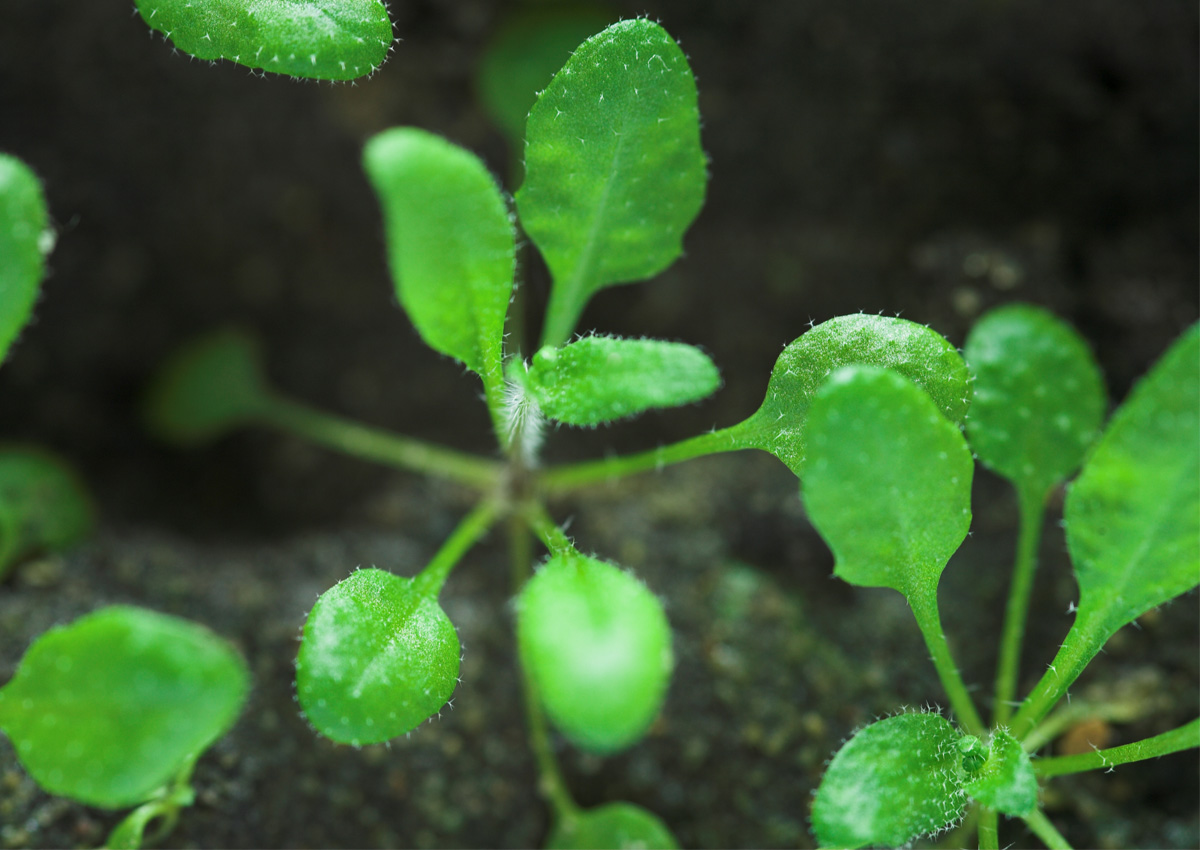
Plant Science Discovery Uncovers Ways to Improve Immune Responses
June 3, 2020| |
The researchers conducted cellular, biochemical, genetic, and transgenic experiments on Arabidopsis, and results show the very first steps of Arabidopsis' immune response to a bacterial infection. In Arabidopsis' cell walls, specialized proteins watch for evidence of invasion and grab the flagellum, a bacterium's swimming appendage, as soon as they detect it. To send a message to the cell nucleus, the proteins use different approaches. According to the study, one approach is to attach a small protein, ubiquitin, to a messenger protein called BIK1. When the signal is relayed to the cell nucleus, the message is deciphered. Reinforcements are sent to the cell wall and beyond.
The rapid signal the team discovered might help monitor the immune response in humans. In agriculture, the discovery could help breed plants with stronger resistance to a broad spectrum of infections.
For more details, read Texas A&M Today.
| |
You might also like:
- Researchers Discover Vaccine to Strengthen Plant Immune System
- Research Sheds Light on Key Component of Plant Immune Systems
- Blueprint for Plant's Immune Response has been Found
Biotech Updates is a weekly newsletter of ISAAA, a not-for-profit organization. It is distributed for free to over 22,000 subscribers worldwide to inform them about the key developments in biosciences, especially in biotechnology. Your support will help us in our mission to feed the world with knowledge. You can help by donating as little as $10.
-
See more articles:
-
News from Around the World
- Zambia to Release 2 Drought Tolerant Cowpea Varieties
- Genome Editing and Its Applications in Health and Agriculture
- Chile Serves as a Key Enabler for Global Plant Breeding Innovations
- Omega-3 Canola Oil to Help Reduce Overfishing
- Bt Brinjal Farmers Earned 21.7% More, Satisfied with Yield and Crop Quality
-
Research Highlights
- Plant Science Discovery Uncovers Ways to Improve Immune Responses
- Iranian GM Rice Found to Contribute to Environmental Health
-
Plant
- GA20ox-2 Targeted Mutation Produces Semi-dwarf Rice
-
Health
- Scientists Find Potential Targets for COVID-19 Vaccine
- First Results from Human COVID-19 Immunology Study Identify Universally Effective Antibodies
-
Read the latest: - Biotech Updates (November 26, 2025)
- Gene Editing Supplement (November 26, 2025)
- Gene Drive Supplement (February 22, 2023)
-
Subscribe to BU: - Share
- Tweet

